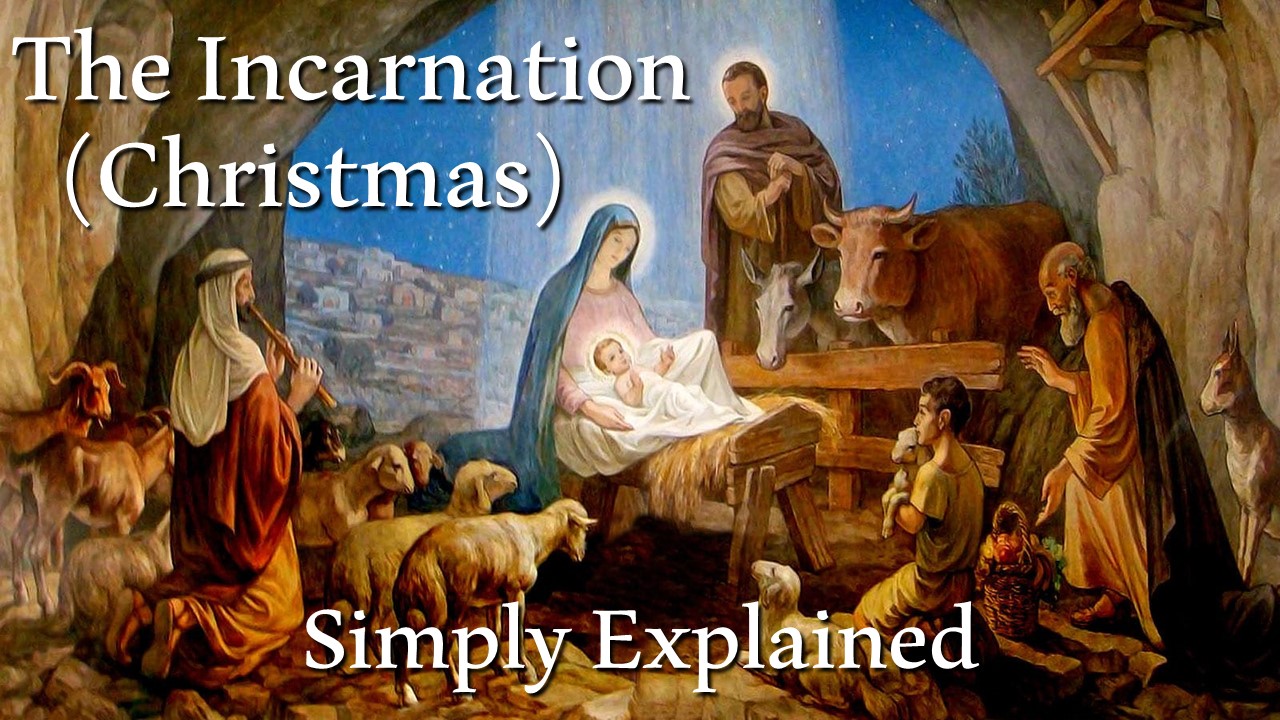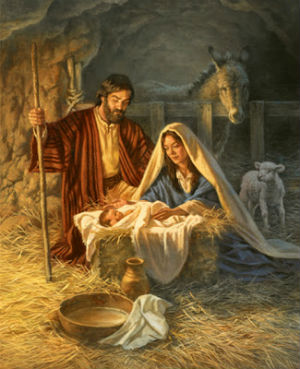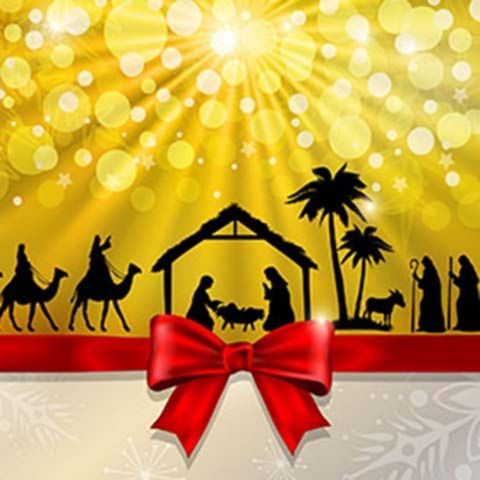The Incarnation: Understanding Christmas from a Catholic Perspective
Related Articles: The Incarnation: Understanding Christmas from a Catholic Perspective
Introduction
With great pleasure, we will explore the intriguing topic related to The Incarnation: Understanding Christmas from a Catholic Perspective. Let’s weave interesting information and offer fresh perspectives to the readers.
Table of Content
The Incarnation: Understanding Christmas from a Catholic Perspective

Christmas, celebrated annually on December 25th, is a pivotal event in the Christian calendar. For Catholics, it marks the birth of Jesus Christ, the Son of God, and the culmination of God’s plan for the salvation of humanity. This celebration transcends mere festivity; it is a profound theological statement, steeped in rich symbolism and historical context.
The Incarnation: God Made Flesh
The central tenet of Christmas lies in the concept of the Incarnation. This theological doctrine asserts that the eternal Word of God, the second person of the Trinity, took on human flesh in the person of Jesus Christ. This event, described in the Gospel of John (1:14), is the cornerstone of Catholic faith.
The Incarnation is not simply a historical event but a profound mystery. God, in his infinite love, chose to become one of us, sharing our joys and sorrows, our triumphs and failures. This act of humility, this self-emptying of God, is the ultimate expression of God’s love for humanity.
The Significance of Jesus’ Birth
The birth of Jesus Christ is not merely a biological event; it signifies the beginning of a new era, a new covenant between God and humanity. This covenant, established through Jesus’ life, death, and resurrection, offers forgiveness of sins, redemption from the consequences of sin, and the promise of eternal life.
The significance of Jesus’ birth can be understood through several key aspects:
-
The Fulfillment of Prophecy: Jesus’ birth fulfilled numerous prophecies found in the Old Testament, pointing to the coming Messiah, a savior who would redeem humanity. These prophecies, meticulously documented by Jewish scholars, served as a testament to the divine plan unfolding before their eyes.
-
The Light of the World: Jesus is described as the "light of the world" (John 8:12), dispelling the darkness of sin and offering hope and salvation to all. His birth symbolizes the dawn of a new era, a time of grace and redemption for humanity.
-
The Beginning of God’s Kingdom: Jesus’ birth marks the beginning of God’s Kingdom, a reign of love, justice, and peace, which will ultimately encompass all creation. His life and teachings laid the foundation for this kingdom, a kingdom that extends beyond earthly boundaries.
The Celebration of Christmas
The celebration of Christmas is a multifaceted experience for Catholics. It is a time for:
-
Worship and Prayer: Christmas is a time for Catholics to gather in churches and participate in special masses, reflecting on the significance of Jesus’ birth and thanking God for his gift of salvation.
-
Family and Community: Christmas is a time for families and communities to come together, sharing meals, gifts, and moments of joy and celebration. This aspect of Christmas emphasizes the importance of human relationships and the spirit of generosity.
-
Charity and Service: The season of Advent, leading up to Christmas, encourages Catholics to engage in acts of charity and service to those in need. This aspect of Christmas highlights the call to follow Jesus’ example of love and compassion.
FAQs Regarding Christmas and its Meaning for Catholics
Q: Why is Christmas celebrated on December 25th?
A: The exact date of Jesus’ birth is unknown. However, the early Church chose December 25th to coincide with the Roman festival of Saturnalia, a celebration of the winter solstice. By associating Christmas with this pagan festival, the Church hoped to convert pagans to Christianity.
Q: What is the significance of the Nativity scene?
A: The Nativity scene, depicting the birth of Jesus in a stable, serves as a visual representation of the Incarnation. It highlights the humility of God, who chose to be born in simple surroundings, and emphasizes the importance of human relationships, as Mary, Joseph, and the shepherds are present at the birth of Jesus.
Q: What are the main Christmas traditions observed by Catholics?
A: Common Christmas traditions observed by Catholics include attending Midnight Mass, exchanging gifts, singing Christmas carols, and sharing special meals with loved ones. These traditions are rooted in the celebration of Jesus’ birth and the spirit of joy and generosity that the season embodies.
Tips for Understanding Christmas from a Catholic Perspective
-
Read the Gospels: The Gospels of Matthew and Luke provide detailed accounts of Jesus’ birth and early life, offering valuable insights into the significance of this event.
-
Attend Christmas Mass: Participating in Mass, especially Midnight Mass, allows for a deeper understanding of the liturgical meaning of Christmas and the theological significance of the Incarnation.
-
Reflect on the Symbolism: Pay attention to the symbolism of various Christmas traditions, from the Nativity scene to the Christmas tree, and consider how these symbols relate to the central themes of Christmas.
-
Engage in Acts of Service: Following the example of Jesus, engage in acts of charity and service to those in need, extending the spirit of Christmas beyond the celebration itself.
Conclusion
Christmas, for Catholics, is not merely a holiday but a profound theological event, a celebration of God’s love for humanity, manifested in the Incarnation of Jesus Christ. This celebration is an opportunity to reflect on the meaning of God’s gift of salvation, to renew our commitment to faith, and to embody the spirit of love and generosity that Jesus exemplified throughout his life.

![]()






Closure
Thus, we hope this article has provided valuable insights into The Incarnation: Understanding Christmas from a Catholic Perspective. We thank you for taking the time to read this article. See you in our next article!